Welcome to In Reading Color, a space where we focus on literature by and about people of color.
Today, I wanted to explore some books about major legislation that I only just learned about recently. It baffles my mind how I only learned about the Chinese Exclusion Act of 1882 as an adult. Especially since it was the first major law restricting immigration to the U.S. The law meant that many of the (mostly male) laborers who had come from China couldn’t eventually bring over their lives and families, and were never given citizen status.
After Chinese people built the railroads in the west and started attaining more and more success, racial resentment towards them grew. Congress passed the Exclusion Act into law in 1882 in response to these anti-Chinese sentiments. Though it was initially intended to ban virtually all Chinese immigration into the country, with the exception of a few, for 10 years, it was extended first by the Geary Act, then the Scotts Act. Finally, it was extended indefinitely until it was repealed completely in 1943. And all the while, Chinese people who were already in the U.S. lived in a sort of cultural limbo. And, I should say, that during this time, there was no exclusionary laws against Europeans immigrating to the U.S.
Today, I’ve got a brand new memoir and two historical fiction books that show the longstanding consequences of the Exclusion Act and what it meant for Chinese American culture.
Bookish Goods
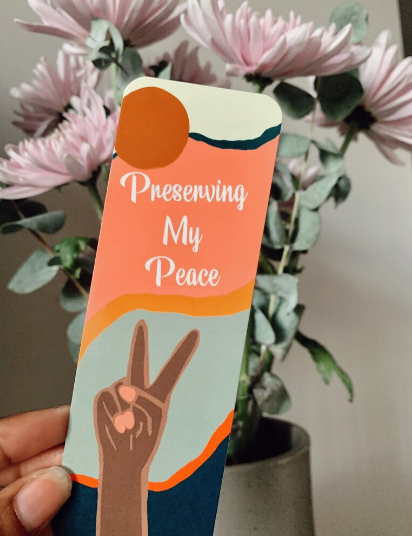
Preserving My Peace Bookmark by KLigg
The way our news cycle is set up, following the message on this bookmark is vital. Preserve your peace, y’all! $4
New Releases
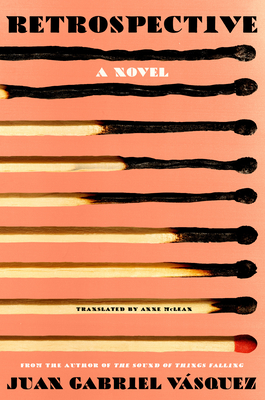
Retrospective by Juan Gabriel Vásquez, translated by Anne McLean
Sergio Cabrera is in Spain for an exhibition looking at his great oeuvre as a director. Though he is a celebrated film maker, his personal life is in pieces — his father has just died and his marriage is on the rocks. Over a few days, Sergio looks at his extraordinary life, first recounting how his famous actor parents moved him and his sister out of the upper echelon of Colombian society to Mao’s Cultural Revolution in China. There, they learned Chinese, lived among other ex-pats, and learned to be guerrilla fighters. After a while, they joined the revolution in Colombia, where they nearly died. Sergio manages to get out of the revolutionary lifestyle and becomes a famous director. Retrospective is a historical family saga set among major historical events that shaped the world.
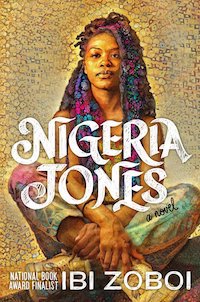
Nigeria Jones by Ibi Zoboi
Nigeria is 16 and has been raised within the Movement, a Black separatist group in Philadelphia with the mission to leave oppression behind in search of a utopia. When her mother disappears, she sets out to find her, and discovers truths that shake up what she thinks she knows about the Movement and herself.
Don’t forget to check out First Edition, the new podcast started by Book Riot co-founder Jeff O’Neal. It explores the wide bookish world, with interviews, lists, rankings, retrospectives, recommendations, and much more, featuring people who know and love books. Subscribe to First Edition on Spotify, Apple Podcasts, or your podcatcher of choice.
More New Releases
Oh My Mother!: A Memoir in Nine Adventures by Connie Wang (Memoir)
Our Migrant Souls: A Meditation on Race and the Meanings and Myths of “Latino” by Héctor Tobar (Memoir)
Queens of Wonderland by Gama Ray Martinez (Fantasy)
The Comeback Paperback by Lily Chu (Romance)
A Shadow Crown by Melissa Blair (Fantasy)
To Shape a Dragon’s Breath by Moniquill Blackgoose (YA, Fantasy)
The Secret Summer Promise by Keah Brown (YA, Contemporary Romance)
I’m Not Supposed to Be in the Dark by Riss M. Neilson (YA, Fantasy)
The Iron Vow (The Iron Fey: Evenfall, 3) by Julie Kagawa (YA, Fantasy)
Only This Beautiful Moment by Abdi Nazemian (YA, Queer Historical Fiction)
You Don’t Have a Shot by Racquel Marie (YA, Queer Romance)
When Clouds Touch Us by Thanhhà Lai (Middle Grade, Memoir In Verse)
For a more comprehensive list, check out our New Books newsletter.
Riot Recommendations
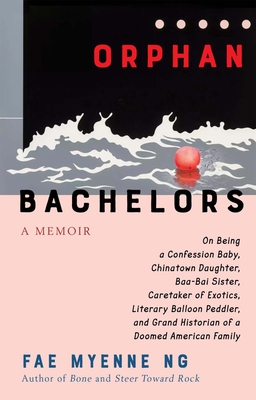
Orphan Bachelors by Fae Myenne Ng
This one is just out today.
In this memoir, Ng writes of the consequences of the Exclusion Act, under which her Chinese family was suffocated. Ng came of age as the child of a seamstress mother, a sailor father, and the Orphan Bachelors of San Francisco’s Chinatown — men who were the walking embodiments of the Exclusion act. As a result of the legislation, they were unable to wed or have children, and so Ng and her siblings, and other children, became their adopted progeny. In Orphan Bachelors, Ng returns home to write the story of her ancestors who sacrificed so much.
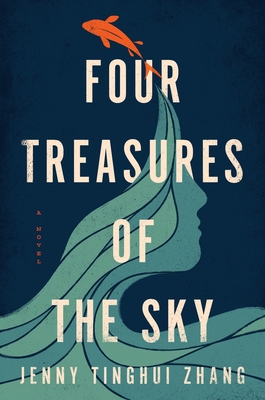
Four Treasures of the Sky by Jenny Tinghui Zhang
Daiyu’s name carries with it the tragic story of a heroine who is beautiful but cursed to be heartbroken. She starts to inhabit this narrative once her parents disappear from their small, quiet village in China, and Daiyu must flee to a calligraphy school where she is safe, for a time. She ends up becoming a victim of human trafficking and smuggled to a brothel in San Francisco, CA. She escapes and makes it to Idaho, where she begins work at a Chinese owned general store. Throughout, Daiyu always seems to narrowly escape a dark fate that seems to be chasing her, until it must be faced head on. The Exclusion Act and its anti Chinese sentiments looms over the entirety of this novel, which culminates in terrible violence.
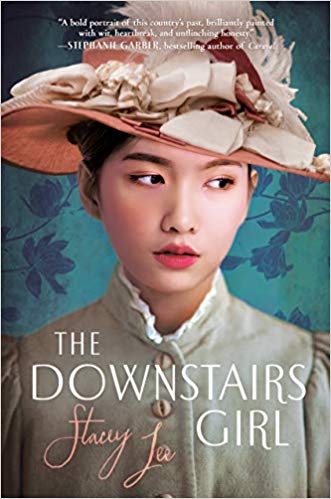
The Downstairs Girl by Stacey Lee
It’s 1890 in Atlanta, GA and Jo Kuan is 17 trying her best to survive. She gets paid a measly .50 cents a day as a milliner’s assistant, which isn’t enough to buy her guardian, Old Gin, needed medicine. On top of that, she and Old Gin live in the basement of a print shop, a place that used to be a spot for abolitionists to hide. Well, bad goes to worse when she’s fired by her boss for being too “saucy” according to customers — I’m paraphrasing here, but essentially customers were complaining because she’s Chinese. In desperation, she takes back her old job as a lady’s maid to the wealthy and cruel Caroline. One day she gets the idea to write a column as an “agony aunt,” and goes by the name Miss Sweetie. As Sweetie, she voices her thoughts on society’s many cruelties and injustices, which grows the newspaper’s subscriptions her column is being printed in, but also makes many question her true identity. As she continues writing her column, she learns more about her parents but also crosses paths with one of the city’s most well-known criminals.
Thanks for reading; it’s been cute! If you want to reach out and connect, email me at erica@riotnewmedia.com or tweet at me @erica_eze_. You can find me on the Hey YA podcast with the fab Tirzah Price, as well as in the In The Club newsletter.
Until next time,
Erica
